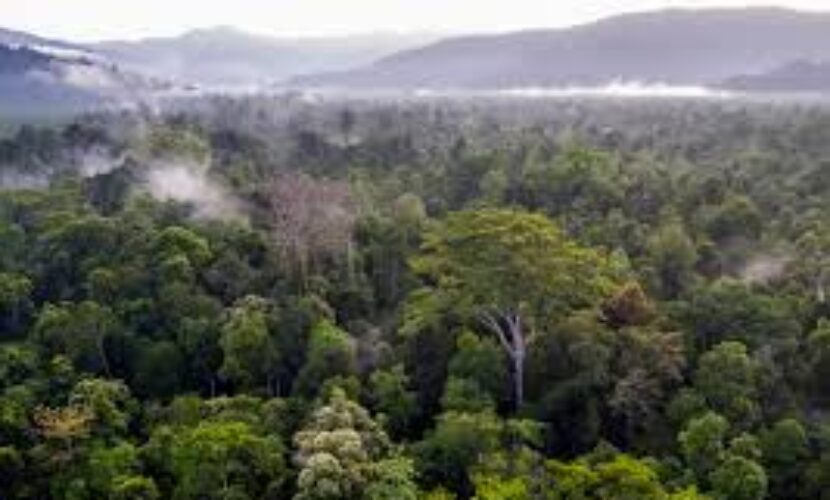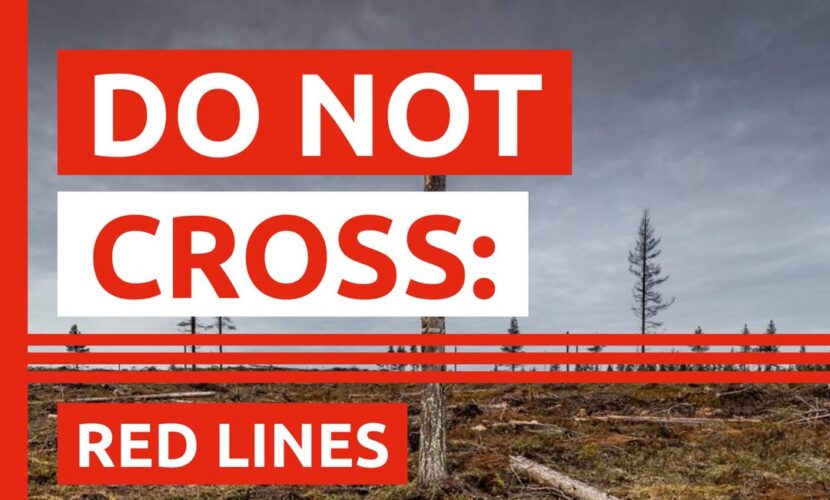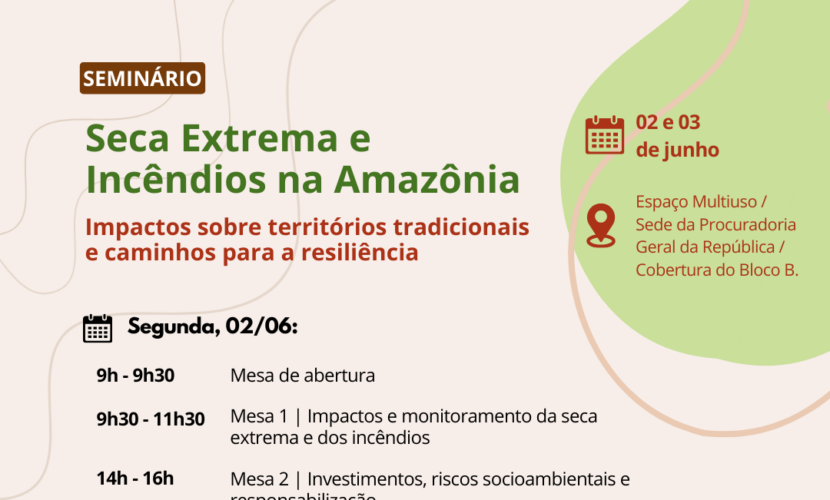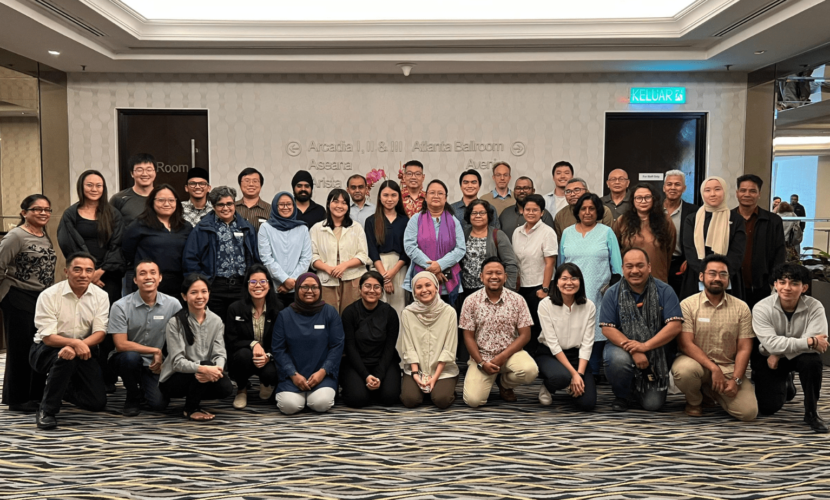最新記事&分析
Frontline Leaders Call on BlackRock and Vanguard to Adopt Indigenous Rights and Deforestation Policy

BlackRock and Vanguard have opportunity to implement concrete climate policy addressing land rights, deforestation, and human rights abuses in portfolios
Oakland, CA – Today, frontline leaders held a virtual press conference at the United Nations Permanent Forum on Indigenous Issues (UNPFII) calling on the world’s two largest asset managers, BlackRock and Vanguard, to adopt Indigenous rights and deforestation policies. BlackRock has yet to respond to a letter sent in March of 2021 signed by over 80 Goldman Prize winners, community leaders, environmental and land defenders, and activists from around the world demanding the company respect Indigenous and tribal peoples’ rights and stop financing the companies and industries driving violence and criminalization against land defenders, and environmental destruction.
“The destruction of the Amazon rainforest is a threat to humanity and to the natural systems on which it depends. Indigenous Peoples are the best protectors of the Amazon, and we will continue to defend our rights and our territories from the extractive industries and threaten Indigenous Peoples and the rainforest,” said Marlon Vargas, President, Confederation of Indigenous Nationalities of the Ecuadorian Amazon (CONFENIAE), Ecuador.
“It is important for the international community to demonstrate their solidarity with us to ultimately hold BlackRock and all financial actors accountable for their investments in companies known to violate Indigenous and nature rights. Everyone must understand that we are not just asking you to call this out for the sole benefit of Indigenous peoples, but for all of humanity,” shared Luiz Eloy Terena, Legal Advisor, Association of Indigenous Peoples of Brazil (APIB), Brazil.
BlackRock has so far ignored this call to action, therefore, the leaders are once again demanding that BlackRock respond at this year’s UN Permanent Forum on Indigenous Issues, whose theme is “Indigenous peoples, business, autonomy and the human rights principles of due diligence including Free, Prior and Informed Consent.”
In December 2020, Vanguard released a lackluster statement clarifying its position on Indigenous rights. Unfortunately, it lacks any concrete commitments to hold companies accountable for Indigenous rights violations. Vanguard’s Indigenous rights position merely states that it “expects companies and their boards to have effective risk oversight strategies,” but based on its current investments, there is no evidence that it is adhering to any of the lip service in its own position.
Alfred Brownell, Environmental Human Rights Attorney, 2019 Goldman Prize Recipient, Green Advocates, Liberia, said, “The agribusiness companies BlackRock and Vanguard finance in Liberia’s Upper Guinea Forest are not only destroying the precious habitat of endangered pygmy hippos and chimpanzees, they are dispossessing my people of their land and the right to choose their own model of development. Instead of adding value to community-driven enterprises that coexist with nature, BlackRock and Vanguard’s investments are obliterating shrines and burial grounds and wiping out centuries of history, culture, religion, customs, and values that Indigenous communities hold sacred, further impoverishing Indigenous communities.”
“Merely acknowledging the interconnectedness of climate change, ecosystem protection, and Indigenous rights is no longer enough. It is past time for asset managers like BlackRock and Vanguard to implement actual policies with tangible timelines and clear consequences for a company’s inaction on these issues,” said Roberta Giordano, a spokesperson for the BlackRock’s Big Problem campaign.
In addition to asset managers, big banks play an enormous role in financing climate chaos and violating Indigenous and human rights. This is why yesterday shareholders at Citigroup, Bank of America, and Wells Fargo voted 12.8%, 11%, and 11% respectively on resolutions demanding an end to financing new fossil fuel development. But, despite their claims of holding investee companies accountable for climate action, BlackRock and Vanguard failed to support these resolutions. With even larger margins, 34% of Citigroup shareholders and 26% at Wells Fargo voted for Indigenous rights policies, including the right to Free, Prior, and Informed Consent (FPIC). But it remains to be seen whether BlackRock and Vanguard have supported these resolutions.
BlackRock recently published an interim emissions reduction target as part of its net zero commitment. The asset manager intends for 75% of its corporate and sovereign assets to be invested in issuers with science-based climate targets by 2030. While the ambition of BlackRock’s target is headed in a positive direction, its actual impact depends on whether the financial behemoth will follow up with concrete policies. BlackRock’s Annual General Meeting of Shareholders (AGM) is scheduled for May 25, 2022, and the company is expected to face questions scrutinizing the sincerity of its climate commitments and stance on Indigenous rights.
Background
- Campaign statement on BLK’s 2030 interim targets
- Full analysis of BlackRock’s approaches (2021) to “natural capital,” human rights, and engagement
- Doubling Down on Deforestation (Friends of the Earth, 2020) analyzes BlackRock’s publicly listed investments to identify the supply chain links between the companies in which BlackRock is invested and deforestation and land conflict.
- Complicity in Destruction IV (Amazon Watch, 2022) exposes mining companies exploiting or seeking to exploit Indigenous lands and the human rights violations in the Brazilian Amazon, in which financial institutions including BlackRock and Vanguard are complicit.
- Investing in Amazon Crude (Amazon Watch, 2021) Together, the “Big Three” BlackRock, Vanguard, and State Street hold $46 billion in oil companies, such as ENAP and Petroamazonas, operating in the Amazon.
- BlackRock’s Big Deforestation Problem (Friends of the Earth, Amazon Watch, and Profundo, 2019) details BlackRock’s investments in companies driving deforestation, land grabs, and human rights abuses.
- Gendered and Racial Impacts of the Fossil Fuel Industry in North America and Complicit Financial Institutions (WECAN 2021) investigates the disproportionate gender and race-specific health and safety impacts as well as human and Indigenous rights issues of the fossil fuel industry in North America and spotlights complicit financial institutions.
- Vanguard’s Empty Promises (ACRE and Little Sis, 2022): Report examines how Vanguard’s ESG funds pour money into industries that fuel climate change and other harms in Black, Indigenous, and people of color communities.
- Vanguard Group: Passive About Climate Change (IEEFA, 2021) compares Vanguard’s ‘net zero’ pledges to its holdings and weighs that against what is needed for the climate and investor interests.
- Vanguard and Universal Ownership (Universal Owner, 2021) examines whether Vanguard behaves like a universal owner, whether it recognizes that it is in its enlightened self-interest to prevent the market from inflicting catastrophic climate change on itself.
- Campaign statement on Vanguard’s position on coal
- Campaign demands for Vanguard
Article originally published by Amazon Watch







